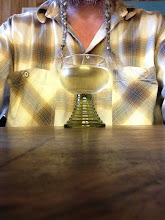Even if you make nothing but good decisions in your life, you will die. Even worse, it is likely you will have regrets when you die (unlike, say, cats or horses). In the meantime sometimes you do things without self interest- assassinate Nazi leader Reinhard Heydrich (The Butcher of Prague) for instance, when a) you've no idea who might win the war and b) you are almost certain to get caught and die a very nasty death as a result. Such events we put down to selfless virtue, and we owe that to our relationship with the immortal gods, in that as humans and occasionally heroes, in ancient Greek cosmology you had at least a chance of transcending your mortality, and this has nothing to do with nature.
Le Corbusier is the ultimate tragic hero for architecture, he showed us the way, he made rational decisions, he flayed his fists at the gods, and he ended up 'tragically' building La Tourette, a building fabulously set against nature and drowning himself when he'd had enough.
The Americans, being all the more practical, and somewhat less logical, built a future on human happiness. The ancient gods were not for them. Instead, they sought an organic relation with nature, almost Darwinian, perhaps because they were surrounded by a hell of a lot of it, and that the early settlers were farmers, and perhaps because they were by enlarge severely god fearing protestants. Ancient Greece was lost on the new world, but adopting organic unity proved equally problematic, as exemplified by Louis Sullivan and Frank Lloyd Wright. Sullivan got drunk (not that he was the only one) and FLW became a guru (not to say the early C20th was not awash with gurus). American nature worship would take us through to the hippies and beyond, almost to Steve Jobs, but it would also feed famously self interested ideologies such as that espoused by the ridiculous Ayn Rand. The european tradition lived on to wheel in Aldo Rossi, Siza, Ungers and anybody else who wasn't interested in fun-pack modernism. Thats it.
For more read Vincent Scully's monograph on FLW, and of course, read (if you can bare it) and certainly watch 'The Fountainhead'.
Thursday, 15 November 2012
Subscribe to:
Post Comments (Atom)


No comments:
Post a Comment